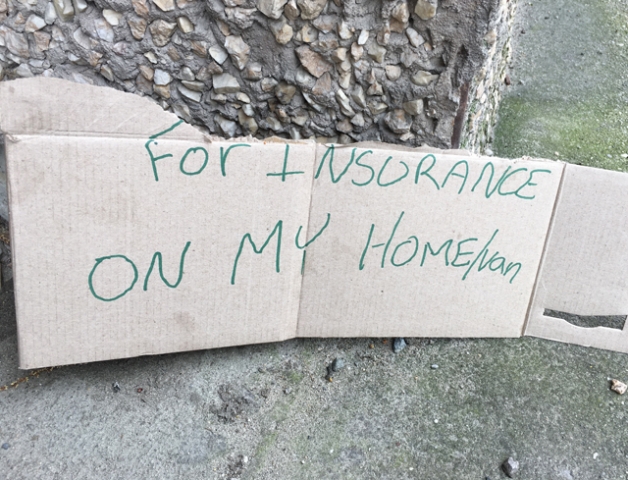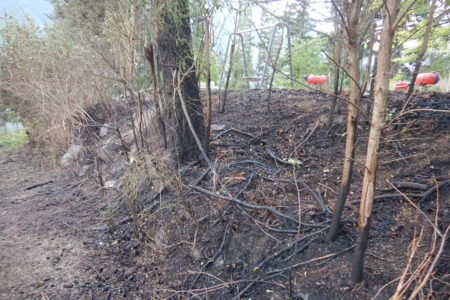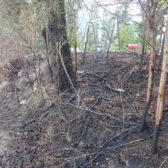City’s street culture team project set to launch
With its financial goal nearly in hand the city’s Street Culture Collaborative is officially nearing the launch of its social goal of creating a support network for the folks living on the city’s streets.
The Street Culture Collaborative (SCC) has secured $82,780 of its required $100,000 to begin its project, which includes two paid street outreach workers.
The team is expected to start soon after the Labour Day weekend, said Rona Park, one of the SCC board members and executive director of Nelson Community Service Centre.
“We are waiting to hear on a couple of other commitments, so we are proceeding on the basis of these pretty solid commitments,” she said.
“We are counting on the business community contributing to this project as they will no doubt benefit greatly from this team being in place.”
The collaborative is in the recruitment phase at the present time and will begin interviewing for the street outreach worker positions on (Thursday) August 25. For the first couple of weeks the team will be in training but will hit the streets soon thereafter.
But the team won’t just be the street outreach workers. After street outreach workers are in place the SCC will be engaging two nursing students from Selkirk College, one to two peers (people with lived experience of the street) and two community volunteers.
The team of eight will be scheduled to work in pairs (one pair out at any given time) and will cover the week from Monday to Friday — roughly 7 a.m. to 3:30 p.m. — each day.
Their geographic scope will include downtown Nelson streets, Railtown area, Lakeside area, and the 7-11/Safeway area, said Park. The days, times and geographic scope are all subject to change as the SCC identifies where the priority needs are.
“The primary objective of the team is to interact directly with the ‘street culture’ population in a friendly, non-judgmental manner, identify their immediate and short-term needs, and ensure that they are directed toward supports and stabilization services as quickly as possible,” said Park.
The secondary aim of the team is to support business owners who may be having difficulty dealing with some challenging behaviour associated with the street culture population.
“We want our team to help foster a new dialogue and culture of understanding, tolerance and respect,” said Park. “Unfortunately, poverty and homelessness are a major sign of the times we live in. These facts loom large in our community right now, and our small city is experiencing some big city issues.”
This is a pilot project for one year (to end August, 2017).
“During this time we will be tracking outcomes to see if we are, indeed, making a difference by having this team in place,” said Park. “If we find we are making a difference, then every effort will be made to secure the funding to keep it going.”
Donations from businesses are still slowly trickling in. All donations (including from the general public) are eligible for charitable tax receipts.
Eight priorities
The SCC has outlined eight priorities it aims to accomplish:
• The first priority of the SCC is to get mental health first aid training out to the stakeholder groups: police, city employees and councillors, social service providers and the business community). The SCC has created some shorter information sessions that will be most useful for business owners and their staff.
• Mount the street outreach team which is well underway.
• Develop a memorandum of understanding between all service providers. This is a practice that will ensure the scope and commitment of service to all referrals made by the street outreach team.
“The concept here is that those people referred for services from the street population are considered ‘most vulnerable’; therefore, they should be prioritized for service,” said Park. “Each organization will determine how they will make this prioritization happen.”
• A temporary work program will be set up.
“There is a lot of interest in getting a more formal program underway, and there are a number of organizations willing to come together to make this work,” Park explained.
• A crisis response team could be created if needed, once the street outreach team is in place.
“All stakeholders — particularly police and mental health/substance use) — feel that we need more data to support the need for, and scope of, this team,” said Park.
• A one stop drop-in centre is an SCC priority that will likely need a feasibility study attached to it, said Park.
“It is a considerably larger undertaking for the community, so we would need to study a bit further the purpose, functions and cost of such a program,” she explained. “We will seek separate funding to conduct a feasibility study.”
• Outcomes related to all of the SCC objectives will be tracked. The Nelson Community Services has been the designated backbone organization for managing the street outreach team.
“Working as a collaborative is a new and different way of working for our community,” said Park. “It is based upon the principles of collective impact that basically implies that by working together on complex social issues, we are more likely to achieve the outcomes we desire than any single organization or group working on its own to effect change.”
• Continue to build on and support all programs and services that are working well, particularly the pursuit of more affordable and supportive housing options and regional addictions treatment beds.
Currently two groups in Nelson are awaiting news from B..C Housing on funding for building low-cost housing.
As well, the city’s Housing Committee is continuously looking at other creative options for increasing the available rental housing stock. And the IHA is in the process of adjudicating proposals for eight supportive recovery treatment beds and eight detox beds for the West Kootenay Boundary region.
“We have all been waiting a long time for funding to come to this area for addictions treatment, so this will help tremendously once these programs are in place,” Park said.
Dodging the bullet
Most of the members of the SCC are pleased that a city bylaw aimed at governing panhandling did not pass, giving way for the street outreach team to be put in place to address these issues in a different way, said Park.
But it was not a unanimous feeling, as some board members had reservations believing that the bylaw would just be another tool to use, while others believed it was akin to using a ‘hammer to kill a fly.’
“It can be said, however, that all were in agreement that aggressive panhandling is an issue for everyone in the community, and that it needs to be addressed one way or another,” Park stated.
“From our research into approaches used in other communities, we have every confidence that aggressive panhandling and other unwelcome behaviour associated with this population can be dealt with effectively with a more relational approach to addressing needs and problems.”



























